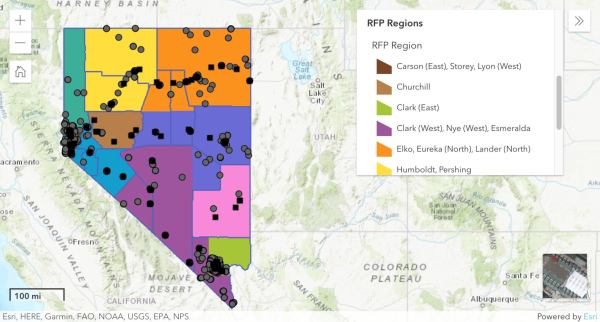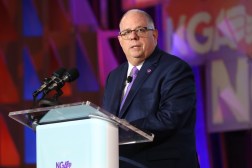Nevada aims to bolster STEM workforce with revived group

As part of an effort to boost the state’s science and tech workforce, Nevada Gov. Brian Sandoval appointed a new program director to its recently resuscitated innovation office Wednesday.
Brian Mitchell told StateScoop that he’d lead the Nevada Governor’s Office of Science, Innovation and Technology’s efforts to better prepare workers to compete in the state’s fledgling tech industry.
“Nevada’s economy was hit harder than any other state during the recession, but now it’s beginning to diversify beyond gaming and tourism,” Brian Mitchell said. “The STEM economy in the state is really growing, but the problem that we’re finding is there’s a huge shortage of STEM-trained workers, so I think that is going to be one of the first items on our ‘to-do list.’”
Mitchell takes the helm of the agency he’d been spending the last few months, as an education fellow in the governor’s office, working to reinstate. Originally created in 2001 attract biotechnology companies to the state, the innovation office had laid dormant for 12 years after it ran out of funding. It was resurrected this summer.
Now, Mitchell will be guiding the group’s work to promote STEM fields at the K-12 and college levels.
For one, the office will be helping kids in rural schools get better access to broadband. Mitchell plans to work closely with the state’s Department of Enterprise IT Services to bolster those broadband expansion efforts so that students have the Internet access they need to participate in the most advanced STEM courses possible.
“One of our goals and one of the governor’s goals is to extend broadband to many of the rural areas of our state, particularly along the eastern side of our state, there’s a lot of rural areas,” Mitchell said. “Then along Highway 50 in the middle of the state, there are a lot of rural areas without good access to broadband.”
That broadband expansion push will supplement an ongoing effort to supply Nevada students with a device of their own in the classroom. Last year, the Legislature allocated $20 million for the effort, known as the “Nevada Ready 21” plan, but Mitchell hopes his office can provide schools with the broadband access to actually make those devices useful.
“In order for this to work in all our rural areas, they need to have these classrooms connected to the Internet,” Mitchell said.
At the higher education level, Mitchell’s new office will be tasked with encouraging schools to prepare students to fill immediate needs at some prominent Nevada companies. Between electric car manufacturer Tesla and data center operator Switch, Mitchell sees a bevy of employers looking for skilled workers right now.
“We have employers who have a huge need for a qualified STEM workforce, and when I say a STEM workforce, I don’t necessarily mean someone who has a master’s degree or Ph.D. in math or physics,” Mitchell said. “There’s a lot of jobs out there that require a basic level of STEM skills, such as welders or machinists or nurse technicians, and so we have a huge need for these types of workers.”
Mitchell’s office now has $3 million in grants to distribute to get training programs for these types of jobs off the ground.
“We don’t want to fund any sustaining costs, but we’ll fund some startup costs there so we get a training program going that really meets the needs of employers with a STEM-ready workforce to get contributing to this department or company,” Mitchell said.
Mitchell hopes these programs can lead to “long-lasting partnerships” between schools and companies, fueling hiring needs for the foreseeable future.
But for all the office’s efforts to reach new college graduates, Mitchell believes the group needs to focus on reaching kids sooner.
“There’s a lot of research out there that shows that middle school students start to lose interest in STEM or they start to feel that they aren’t good at math anymore,” Mitchell said. “So how can we fix that and continue their interest all the way through college where they’re majoring in STEM? We’ll be making some recommendations there that the governor, and the Legislature as well, can promote during the next legislative session.”






